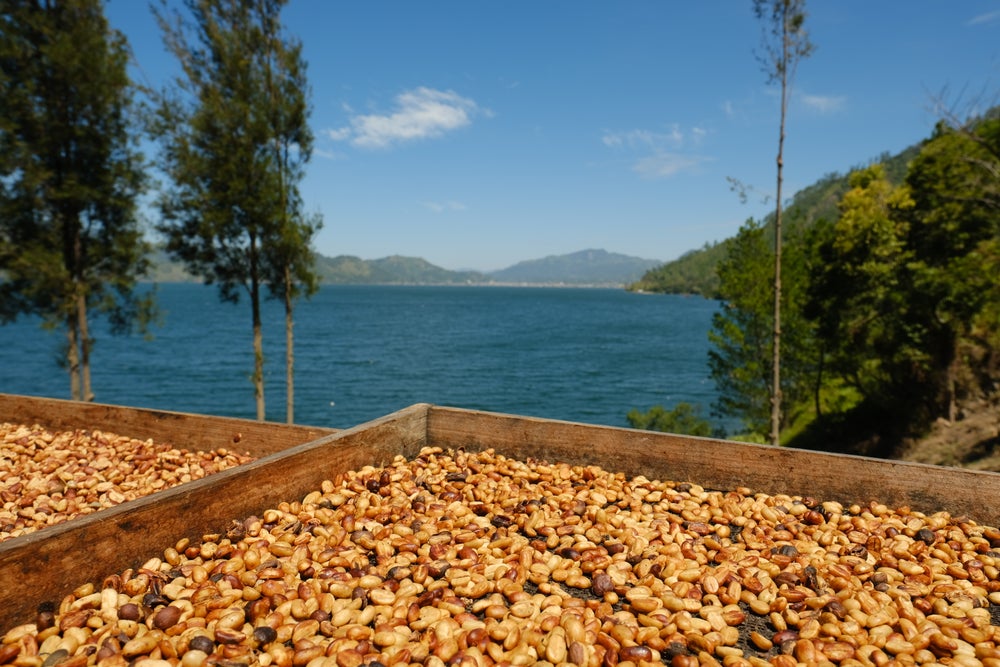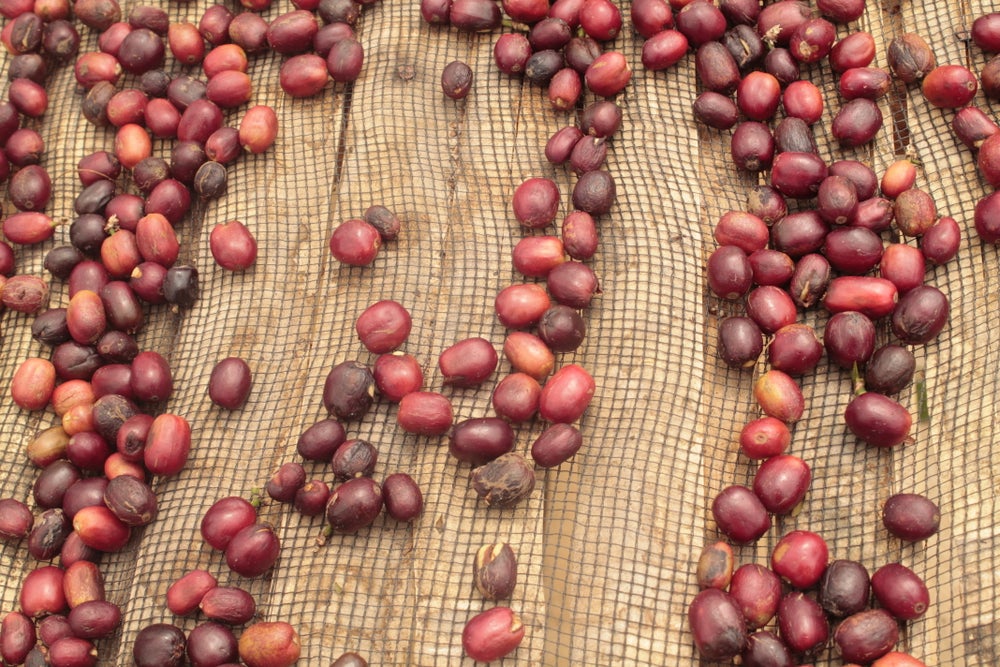About This Coffee
This coffee contributes to a Farmgate Initiative project. Learn more.
In 2019, Aulia Kahfi place 9th in the Sumatra Prestige Cup for his excellent Wet-Hulled lot. We are thrilled to continue purchasing from him.
Aulia cultivates coffee on Rakyat Farm, which he inherited from his family. He has been involved in coffee production since his early teens but has always had a unique interest in specialty coffee. Since specialty coffee was not in high demand in his area during his teenage years, Aulia spent several years mining and selling Vesuvianite, a precious stone often found near volcanoes. He has since returned to coffee production.
Now in his early thirties, Aulia is entrepreneurial and enterprising. Using an old van or his friend’s car, he has expanded his business by purchasing a few bags at a time from neighboring farmers. He collects and processes ripe cherry from farmers in the Lukup Sabun, Pantan Sile and Ratawali neighborhoods. He’s also recently started buying cherry from Gegarang (Jagong Jeget).
Cultivation
Almost all farms on Sumatra are small. On average, farms are between 0.5 to 2.5 hectares. Coffee is usually the primary cash crop for farmers, but most also intercrop their trees alongside vegetables, maize and fruit. This intercropped produce will make up a substantial part of the family’s diet for the year.
Harvest & Post-Harvest
Aulia selectively handpicks ripe, red cherry, or purchases cherry from neighboring farmers. He ferments cherry for 24 hours, changing the water every 12 hours. Following fermentation, Aulia pulps and then strains coffee for about 6 hours before fermenting coffee again for 3 to 7 days. Then, he lays parchment and remaining mucilage on patios to dry. Aulia rakes parchment frequently to ensure even drying. It takes approximately 12 to 25 days for parchment to dry.
Coffee in Indonesia
Indonesia has a long coffee producing history, but recently their coffees have been overlooked by the specialty market. Thanks to our innovative and ever-expanding supply chain, we are proud to bring you high-quality coffees from many of Indonesia’s unique regions, accompanied by in-depth traceability information.
Indonesia is perhaps best known for its unique wet hulling process (giling basah). Though its exact origins are unclear, wet hulling most likely originated in Aceh during the late 1970s.
Wet hulling’s popularity can be attributed to producers’ need for prompt payments. It was also adopted specifically by many producers who lacked the drying infrastructure that was needed to shelter drying parchment from the high humidity and inconsistent rainfall typical in Sumatra. At higher elevations with constant humidity and unpredictable rainfall, drying can prove to be slow, risky and difficult.

